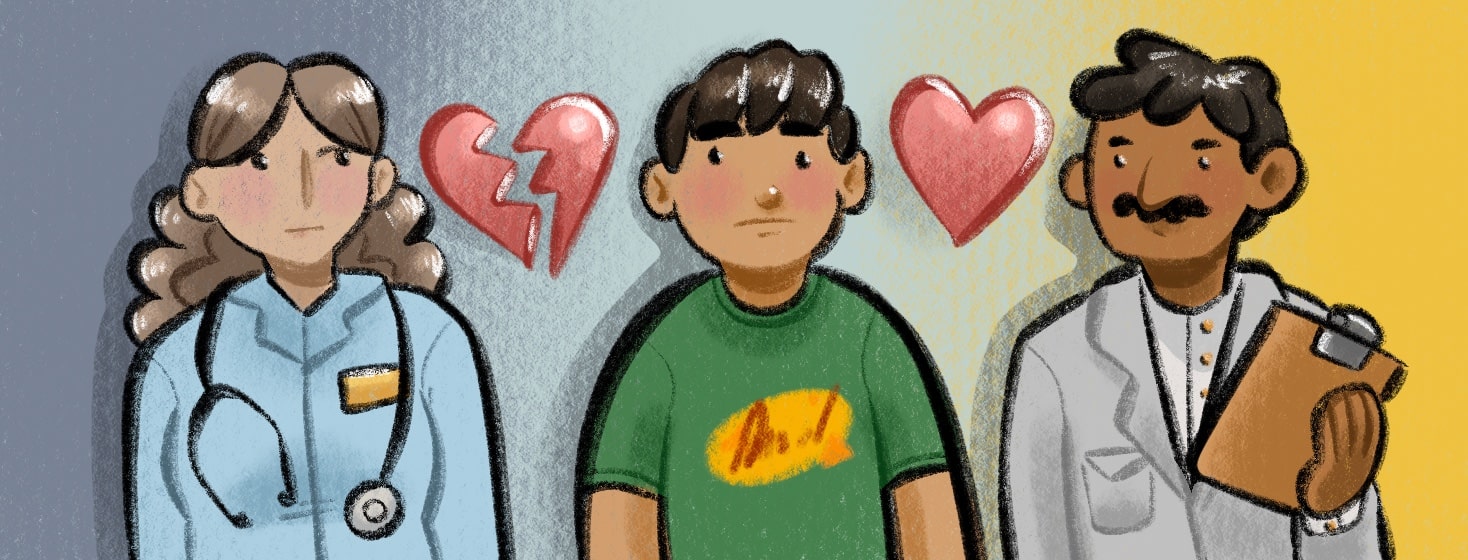Switching Doctors
In a previous article, I spoke about switching pharmacies. Changing to a new pharmacy needs planning and communication. But it can be done easily if everyone is on the same page.
Sometimes, we don’t need to change pharmacies, but we do need to change doctors. Why would you need to change doctors? Maybe you’re moving? Or perhaps your doctor is retiring. Another reason is because you have a had a bad experience with a doctor and want a new provider? Any reason is valid.
Trusting your doctor
A few years ago, I had to do this very thing. I didn’t feel like I was getting the best care available to me from my previous doctor. Without saying too much, I didn’t feel like I was heard or seen by them. And I decided that I needed to see a doctor that I believed in.
Switching doctors at that time was scary. I felt like a failure. At one point, I remember thinking, “This doctor has been with me for so long! Am I being rude by not seeing them anymore?” The answer to that is no! By that point, I didn’t trust that my doctor could help me.
Deciding to see a new doctor comes with a lot of unknowns. And it can be scary, but there are a few things that can help that transition. There are practical steps if you want to change doctors. Dr. Mohan Nadkarni, MD, has provided tips to help you change doctors smoothly. And I will share those with you today:1
Tips when changing doctors
- If it is possible, schedule one last visit with your doctor. Be sure to go over conditions and medicines. And be sure to take notes. Having an overall understanding of your health will help you when you meet your new doctor.
- Look for a new provider before you leave your old one. This is so important! You do not want to have a gap in-between your doctors. How do you look for a new doctor?
- Ask your friends and family. They will be able to give first-hand accounts of their doctors. And you will learn of things they do or do not like.
- Check with your insurance company. Most insurance companies require you to see a doctor in their network. It is important to figure out who is in your insurance network. By doing this, you are able to see which doctor is available to you.
- Check our medical review websites, such as Doctor Finder. Patients can leave reviews for doctors so you can see what strengths and weaknesses they have. For example, some doctors will be easy to talk to and have great bedside manner. And other doctors may not have good bedside manner, but know more about researching your health condition.
- Get your medical records. Asking for your medical records is straightforward. You must fill out a form requesting them. If you already have an appointment set up with a new doctor, you can ask that they be sent there. Or you can ask for them to keep. Keep in mind that if you are unable to get your medical records, that is okay! When you see your new doctor, be sure to provide a current list of medications. Additionally, tell them if you have any allergies or if you have had a specific health concern. For example, if high blood pressure runs in your family, let them know.
- Have your first visit with your new provider. The first time you see a new doctor can feel overwhelming. A lot of questions may be in your mind. Some questions may be, “Will we get along?” or “Are they going to be able to help be as healthy as I can be?” One thing to remember is that building a relationship with your doctor takes time. During your first visit, it is good to know what to expect. For example, for the first visit with your new doctor, you will go over your medical history, talk about your current medications and your health concerns.
- Take time to reflect. After you have seen your new doctor, be sure to take time to think about how your appointment went.
Some questions you could ask yourself are:
- Did this doctor make sure I was understood?
- Was this doctor able to provide clear answers?
- When I mentioned my concerns, did this doctor listen?
- Did this doctor show me respect and kindness?
- Was I comfortable during this visit?
- When I was with this doctor, did they make any of the same missteps as my previous doctor?
Be your own advocate
Deciding to see a new doctor can feel overwhelming. Whether it is out of need or want, it can be scary taking control of a situation that is no longer helping you. Remember to talk to your support system. Knowing that I have people who support me encourages me to do hard things, which sometimes means needing to see a new doctor or hospital.
Remember that you seeking a new doctor is not a bad thing. Your priority is your health. And making sure that you are being taken care of, listened to, and cared for appropriately is so important. Being your own advocate is something that takes courage.

Join the conversation